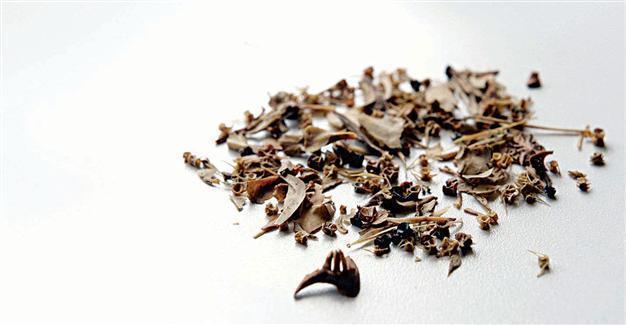Ancient city sheds light on Tokat’s gastronomic past
TOKAT – Anadolu Agency
 Archaeological excavations conducted in the ancient city of Komana Pontika in the northern province of Tokat have revealed a treasure trove of information about the city’s gastronomy and the relationship between culture and food.
Archaeological excavations conducted in the ancient city of Komana Pontika in the northern province of Tokat have revealed a treasure trove of information about the city’s gastronomy and the relationship between culture and food.“Various products were grown in productive plains of Tokat just like today. Besides wheat, barley and legumes, we have found information about rarely found grape pomegranates, figs, cranberries, watermelons, hackberries, hay, strawberries, olives, plums, walnuts and hazelnuts,” said the head of the excavations, Middle East Technical University (ODTÜ) Professor Burcu Erciyas.
“We also found a few rice and other products whose production is difficult. The animal finds included sheep, goat cattle and swine as well as chicken. Among wild animals, partridge and rabbit were especially eaten. The fact that partridge figures were on ceramics and rabbits were on iconography shows us the importance of game animals in Komana cuisine,” she said.
Komana Pontika, whose history dates back to before the Common Era, was an important cultural center in the Mithridates Kingdom as well as in the Roman Empire and featured a holy field dedicated to the Anatolian god Ma. The region, which was a trade center at the same time, drew visitors from all Anatolian cities for its festivals, rich market place and productive soil.
Erciyas said their works proved the variety of food available in Komana, and that game animal dishes, starchy foods and black sesame used as a spice in fruits and baked foods defined the cuisine of the ancient city.
“Throughout the winter, fruits must have been consumed as a side dish,” said Erciyas.
“The existence of limited rice shows that it was consumed in that era. It is very easy to find fruit and vegetables today but even a century ago, these products were consumed in the season; limited production was made depending on climactic conditions, and it was not easy to provide healthy eating conditions.
Information on the variety of produce in Komana can be explained via the city’s productive fields and climate conditions.”
Surface surveys and successful excavations have been continuing at the ancient city since 2009, Erciyas said.
“We had goals in three or four area. We were very successful in three of them. Since our goal is to open Komana to tourism, we accelerated works along the city walls. Then we unearthed a big field in the northwestern part of the city,” she said.
The ancient city was one of the earliest settlements in Tokat, Erciyas said.
The Komana Pontika Archaeological Research Project, supported by ODTÜ and the Scientific and Technological Council of Turkey (TÜBİTAK), was launched in 2004 to determine the location of Komana and gain a greater understanding of its rural texture.
















